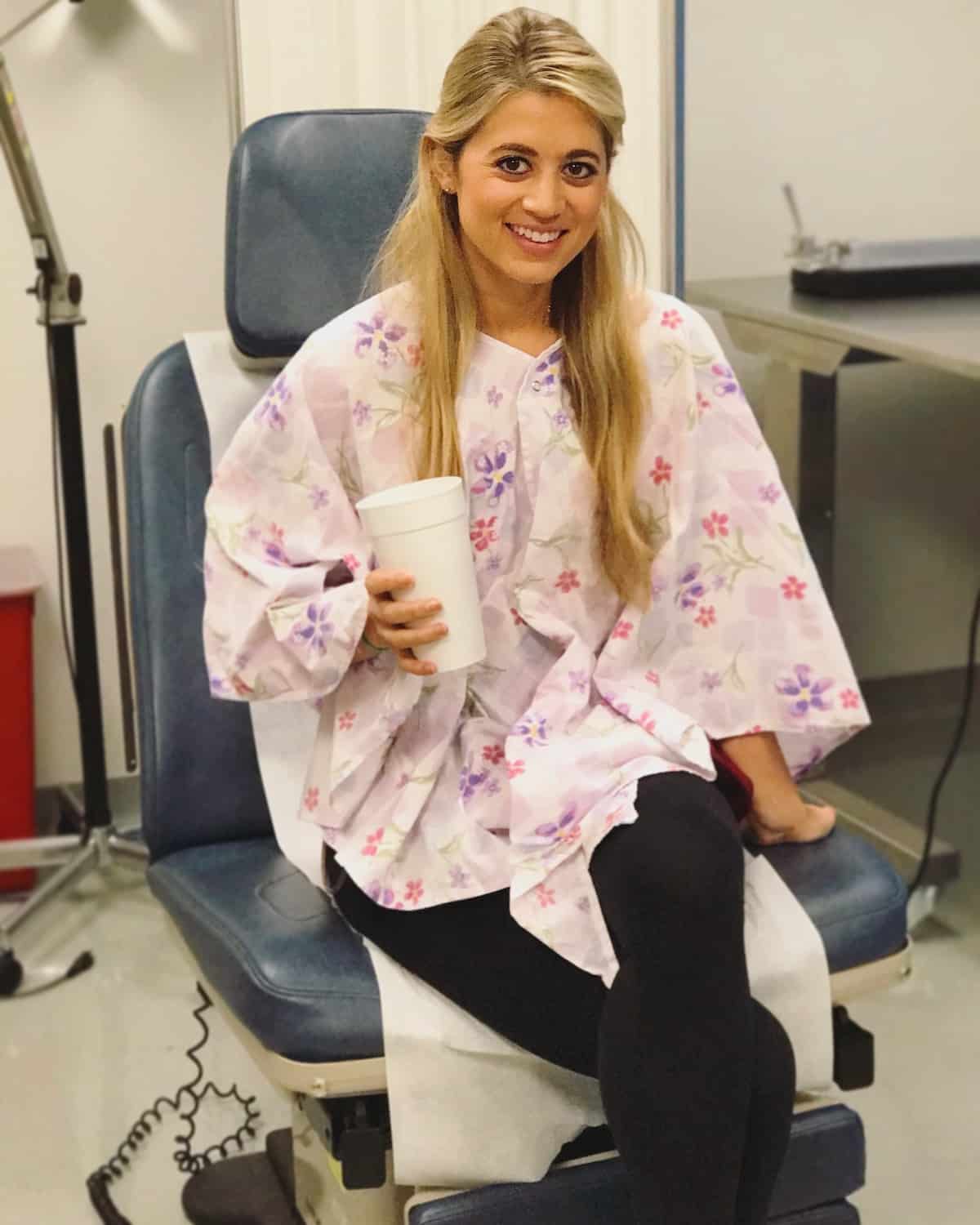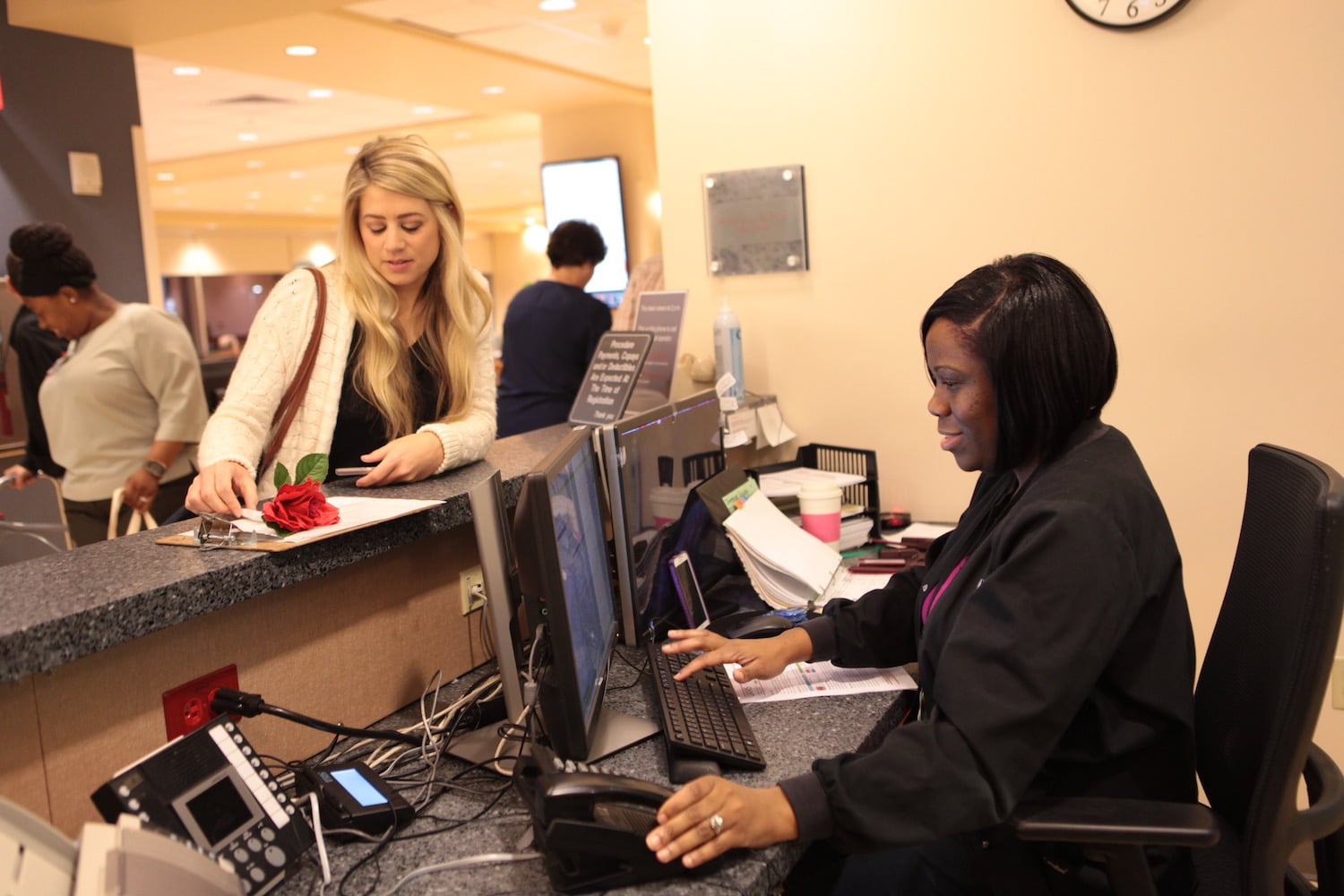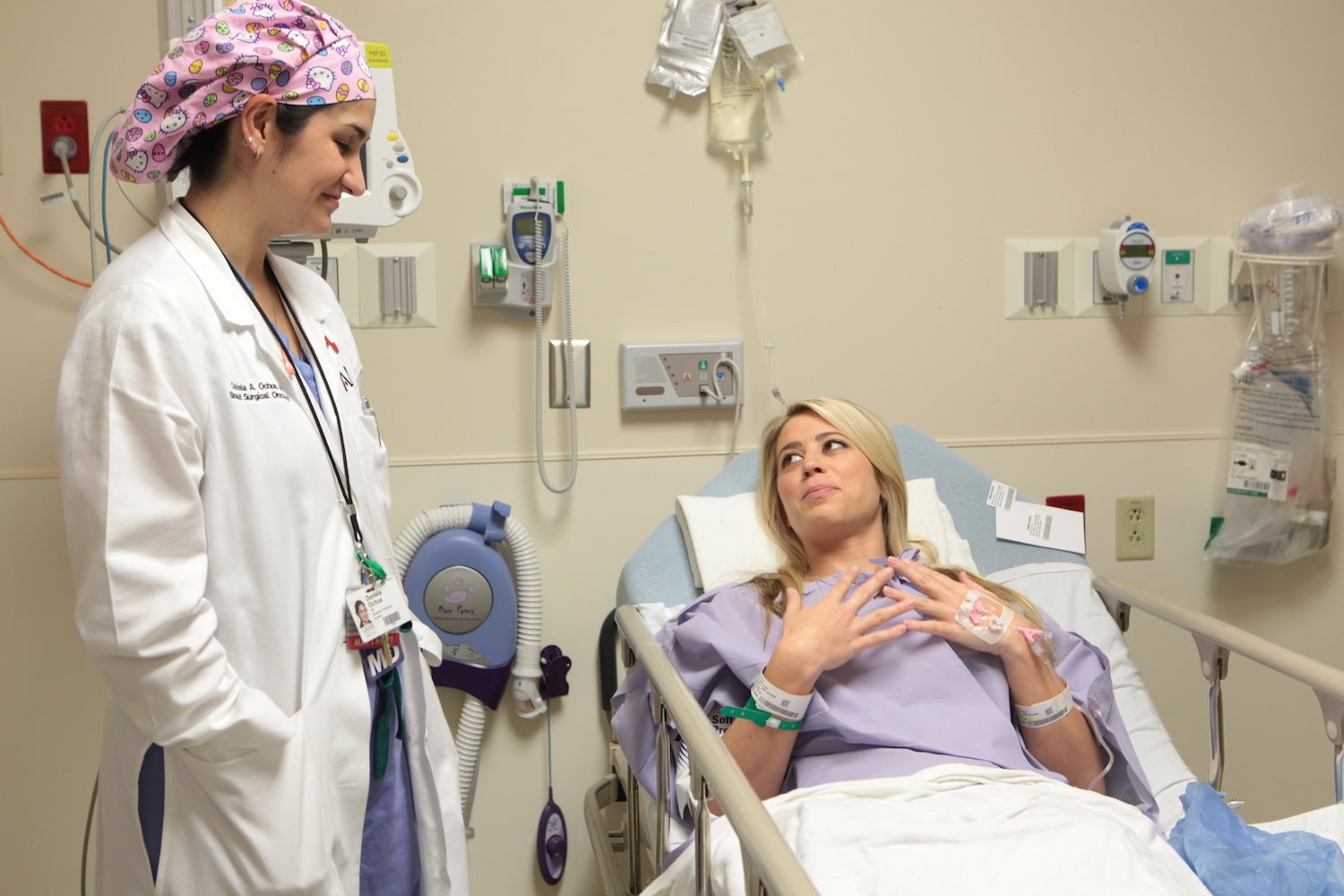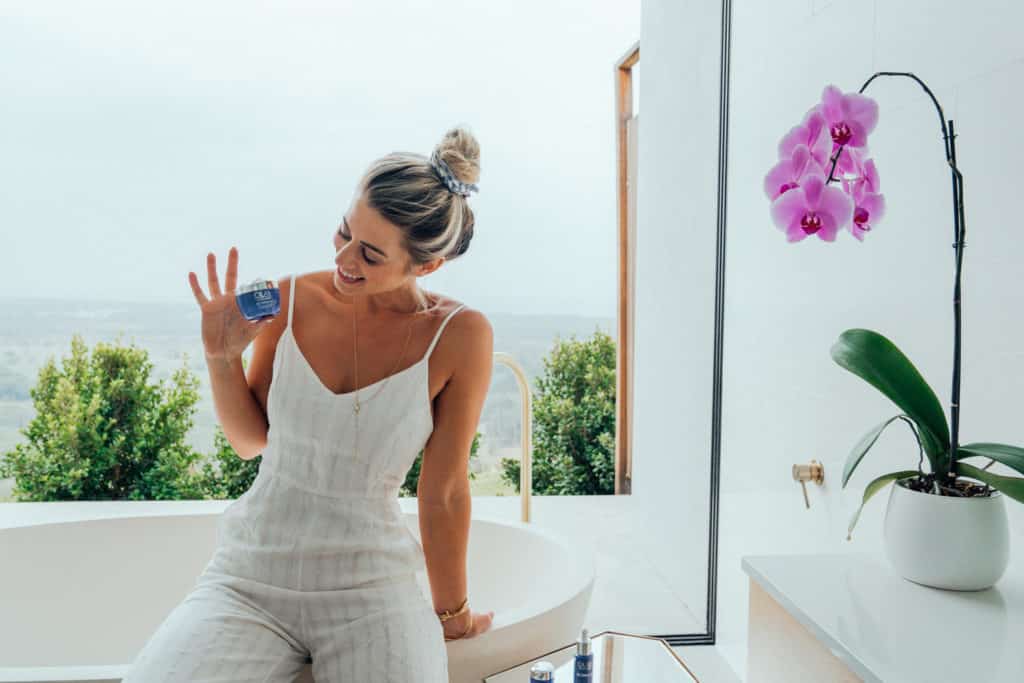Ever since I was young, I’ve had to find pieces that would fit around my hips instead of focusing on my upper body. My mom always called them “child-bearing hips” (thanks, I think?!), so my small B-cups always took a back seat. That’s when, at 29-years-old, when it was time to part ways via preventative double mastectomy, I didn’t exactly feel the grief, the loss, the sadness to see them go. I know this did a great deal for my mental health as I was able to channel a great deal of positive energy to help surrounded this brief period of my life. Now, after healing, I find so much passion in spreading awareness and being a resource for others as they navigate their way through this unique time in their lives. The following are FAQs I’ve received throughout the years that I wanted to put in a blog post for everyone to benefit from!
THE ACTUAL TEST

What’s the first step in getting BRCA tested? Realistically, the waitlist can be super long or may not be available in your area. Don’t pigeon hole yourself here. Talk with your OBGYN or PCP about your family history and concerns. They can facilitate options and then refer you if they think you’re at risk.
What does the test consist of? It can either be a blood or saliva test.
How should I prepare before a meeting with a genetic counselor? Know your family history and your options.
At what age should I get my genes tested if I know others in my family have had breast cancer? Medical management won’t change their advice until you’re an adult, so ages 18-21. Minors aren’t typically going to be getting mammograms or MRI as these are very formative years. The likelihood of getting breast cancer at this age is incredibly low as per the National Society of Genetic Counselors. They advise your first MRI or mammogram at age 25 if there’s family history of cancer.
Should I get BRCA tested if no one in my family has had breast cancer? There are no recommendations for women without a personal history of cancer to be tested for these genes at this time.
Do I get tested for the high risk genes (BRCA 1 or 2) or the entire panel of gene mutations? Where to draw the line here? There are no National Society guidelines here (basically a group of doctors who get together and say this is how we should do healthcare in America). There is one exception, however, that includes a limited family structure. For example, if you’re adopted and don’t know your birth parents or perhaps the women in your family died at a young age and all other living relatives are male, the cancer history may not have a chance to fully present itself (even though, yes, men can be diagnosed with breast cancer as well as carry the mutations). In this case, doctors are more likely to order testing.
My aunt had breast cancer but doesn’t carry the gene. Do you still recommend the test? This would lower the chance for a positive gene mutation, but many factors are unknown here. This could be a mutation from the other side of the family. Each individual history has to be assessed, and genetic counselors can be helpful here. What if your aunt tested negative for only one gene mutation but not for the entire panel? This information needs to be known.
INSURANCE

How much does the test and surgery cost? This depends on your insurance, and the policies follow National Society guidelines. It’s unlikely that insurance will cover if there’s no family history. If you have a 1st degree relative under 40 or 35 with history, insurance company will typically honor covering genetic testing. If you think you’re a good candidate, call a lab. Myriad Customer Service has upfront conversations with patients giving a general sense or idea about coverage but again, it all depends. Ask about their financial assistance program.
Did a positive BRCA result affect your eligibility for life insurance? It depends. The Genetic Information Nondiscrimination Act protects individuals from genetic discrimination in health insurance and employment, but those laws don’t apply to life insurance policies. There isn’t protection here like there is for other areas.
SURVEILLANCE

Apparently, doctors are not backing self exams anymore like the Feel It On The First campaign. Is there any truth to this? Yes and no. If you’re young or not at risk, it may not be encouraged because it can lead to unnecessary tests. More than self exams, doctors promote breast awareness – anyone can have lumps and bumps due to hormonal changes. National guidelines still tell high risk individuals to do self exams. Average risk individuals should be self aware and understand what their breasts are typically like during a normal time frame. If a lump is consistent for a month or so – check it out. These answers can vary by country, and all doctors advocate differently.
How do I know my breasts are okay when I’m breastfeeding? Any time that you’re concerned, discuss with a doctor. A blocked duct does not mean you have breast cancer. Various things in the body can mimic cancer while breast feeding. The issue may just be hormonal and not cancer related, but it still needs attention. Familiarize yourself with your boobs at a new stage of life.
A 25-year-old found lumps in her breasts. Her doctor said not to worry because she’s young. A 44-year-old found a lump but her doctor doesn’t think she needs a mammogram. There are different guidelines everywhere, but from an insurance perspective and a health system perspective, it’s more cost effective to do mammograms at age 40 and above (or 10 years younger than the youngest breast cancer patient in the family). Of course this standard doesn’t exactly look out for the patient. In the health system’s eyes, the risk for getting diagnosed with breast cancer under the age of 50 is low and the mammograms are not going to detect enough to make it all cost-effective. On the flip side, there’s some risk with young breasts and radiation. If a patient is younger than 30, a doctor would typically order an MRI instead of a mammogram. Of course, this is a politically charged discussion. Is it about cost or person? I’ll sit here and say PERSON all day long….and that the healthcare system in America is broken.
RECONSTRUCTIVE SURGERY

Did you have a skin and nipple sparring surgery? Are you under or over the muscle? What are your thoughts on tram flap vs. implants? I wrote all about my decisions in my blog Lifting Up The Ladies: Breast Implants After My Double Mastectomy. All of these decisions are patient/doctor dependent, and a surgeon is the best person to help answer.
Are you concerned about Breast Implant Illness? I’m very aware of it and have had many discussions about it with my doctor and other people in the medical field as well as those who think they have it. At this time, I’m not concerned for my health and am confident in my decisions with reconstructive surgery.
FURTHER FAQs

Can you draw awareness to other genes that increase the risk of cancer? BRCA 1 and 2, PALB2, Check 2, ATM, TP53 (associated with a syndrome), P10, CBH1 (lobular breast cancer) – these are all common breast cancer genes that I’ve been involved in conversations with. The risk for other genes are lower than BRCA 1 and 2. The majority of people are getting panel tests, and it’s uncommon to just get BRCA 1 or 2 tests unless you have a family history of a specific gene mutation. Myriad states that BRCA 1 mutation carriers have up to an 87% risk of developing breast cancer by the age of 70, with BRCA 2 carries have an 84% chance.
Can you talk more about ovarian cancer? BRCA 1 mutation carries have up to a 63% risk of developing ovarian cancer by the age of 70 with BRCA 2 mutation carriers at 27% risk for ovarian cancer. Ovarian cancer is very hard to screen for, so the recommendation here is to get the oophorectomy (removal of ovaries) from 35 – 45 years old or upon completion of childbearing.
Should I avoid hormonal birth control if my mom did not have genetic breast cancer? Do hormonal contraceptives increase breast cancer risk? If you have been diagnosed with breast cancer, you should not use contraceptives that use hormones. It’s important to know if she just tested with BRCA 1 or 2 or tested for the panel. Taking the pill may help cut your risk of ovarian cancer and endometrial (uterine) cancer. This is due to the fact that women who take the pill ovulate, or release eggs from the ovaries, fewer times than women who don’t take the pill. The more times you ovulate over your lifetime, the more hormones you’re exposed to. Studies show birth control lowers the risk of ovarian cancer, and there are varying studies for breast cancer patients. This is an individual decisions based on your own circumstances.
Are there any complications with having kids if you’ve had a double mastectomy? There is no great data to support this as prophylactic mastectomies have only been going on for the past ~20 years.
What’s one symptom of breast cancer that people often disregard? Probably ignoring a family history of breast cancer as these are facts right in front of our face! Also, not all cancers present themselves with lumps. Some have more symptoms so research is important.
All of this to say – I’m not a doctor but did sit down and fact check with one before publishing this post.

Further reading:
13 Things to Know Before Undergoing a Double Mastectomy
Lifting up the Ladies: Breast Implants After My Double Mastectomy
My Double Mastectomy Surgery in 24 Photos
Mastectomy Care Package Ideas
Gift Ideas for Breast Cancer Patients, Previvors and Breasties
Healing from Surgery with Embrace Scar Therapy
The September Issue: Saying Hell Yes to Genetic Testing & Hell No to Cancer
Breaking Up with My Breasties: The Naked Truth
How to Throw a Ta-Ta to the Tatas Party
The Best Double Mastectomy Bras to Wear After Surgery
Happy Birthday Foobs! Life A Year Later
Check out AnaOno Intimates (pictured above) for the loveliest mastectomy (and non-mastectomy) pieces – all shown this Breast Cancer Awareness month during our LimitLes trip to Bali!


Hello Lesley,
I am having a double mastectomy with breast reconstruction on 12/11/2020. I am so happy that I found you while googling to help me prepare the best that I can for this journey. To feel prepared takes away some of the fear and anxiety. Thank you💗